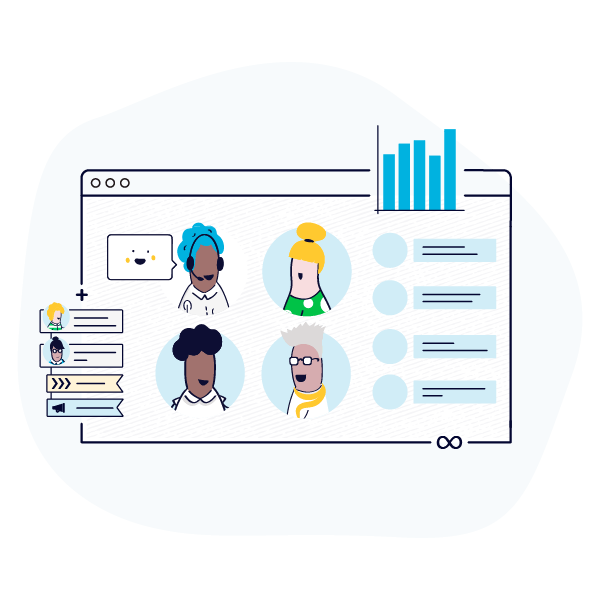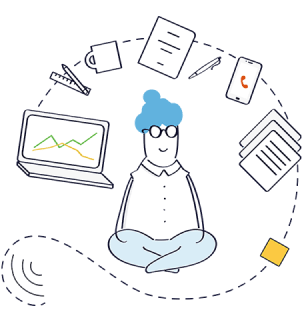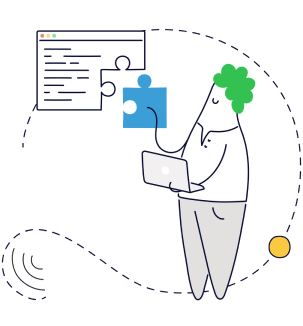
Training and onboarding employees is a vital part of getting a new customer relationship management (CRM) tool. Thankfully, there are ways to make it easier. Keep reading to find out more.
When you get a new CRM for your business, setting it up can often be a process. Even when you’ve got all the settings just how you want them and started to import data, there’s still the matter of figuring out how to use it.
While you might have played around with the CRM during a free trial or while setting it up, your team likely doesn’t have that same experience. When you first roll it out to everyone, they won’t know what they’re doing.
That’s where training and onboarding employees comes in. But the question is, what should that process look like? How can you go about CRM team onboarding?
That question is what we’re here to answer. Keep reading for more info.
Before moving on, let’s take a moment to look at why CRM training is important.
Even the most intuitive CRMs still take some figuring out. The best CRMs come with quite a few different features, from data analysis to sales automation. Learning how to use those things takes time.
Of course, you could just throw your team in the deep end and let them figure it out. The problem with that, though, is that it’ll take a lot longer, and all the results they drive in the meantime won’t be very good.
Alternatively, you could design a CRM training process that would quickly and efficiently teach your team the ins and outs of the platform. That would mean they could start driving results much sooner, and it would also ensure they don’t incorrectly learn anything that they later have to unlearn.
Now that we’ve established the benefits of CRM onboarding, let’s talk about how you can make it work. Here are four simple tips for building an effective training process.
Before you begin onboarding team members on your new CRM, it’s important to develop a plan for the training process. Knowing your training goals ensures the process provides everything your team needs to successfully use the CRM. It also gives you and your team guidance as they adopt the new system.
Here are a few things to remember when creating your training plan:
With your training plan in place, it’s time to launch into your training sessions.
Your CRM provider may offer live training, such as the guided tours we provide at Nutshell. You can also choose to set up training with your team according to your own schedule and contact your CRM’s support team for any assistance you need. Go beyond the guidebook to provide hands-on training as well as time for employees to read manuals and other training materials.
In addition to being more hands-on, creating a training schedule gives your employees an idea of how long it should take them to learn different parts of the CRM. It guides them along at a set pace that allows them to be proficient by a specific date that you can plan around.
During your training sessions, encourage active participation from your employees by asking questions and even playing a review game at the end of each session. Including a few chances for employees to engage with the training materials can help everyone remember the information and makes training more fun. Offering a few incentives for training—like a catered lunch or a small gift card—can also encourage active participation.
Providing resources to your employees doesn’t stop once your CRM training sessions are complete. It’s critical to continue offering support to help team members learn the system and drive the highest possible ROI for your CRM.
Here are a few ideas for doing just that:
One of the simplest ways to facilitate CRM training is to provide or create guides for using the CRM. You can provide these to employees and have them walk through the guides to learn the tool. Then team members can refer back to them whenever they need a reminder of how something works.
Your CRM may provide guides and knowledge bases designed to help teams learn how to use their platform. At Nutshell, for instance, we offer an extensive knowledge base as well as additional resources. Our support team is also available to all of our customers to answer more specific questions.
In addition to materials from your CRM provider, you can also create guidance on your company’s specific policies—how you want your team to handle certain tasks and types of data.
Having those training materials on hand can help your employees not only initially learn about the CRM but also retain that knowledge going forward. You can even update any guides you create as you add new policies or processes.
Another good idea for supporting your employees with your new CRM is scheduling refresher courses when the platform updates. Your CRM may occasionally add new features and update the platform, giving your company new functionality. It’s important to help employees navigate those updates when they roll out.
Although you may be learning how to use the features too, hosting a training session and walking through the features to learn the ropes as a team can be beneficial. Gather any information your CRM provides about how to use the new feature and present it to your staff.
Your team also needs to know when your business includes a new add-on in its CRM system. For instance, if you start using your CRM’s email marketing platform, schedule a few training sessions with your marketing team to help them get up and running. You’ll ensure that everyone knows how to use the tool and help prevent any mishaps as they start creating and sending email marketing campaigns.
Your staff needs to know that your new CRM comes with a learning curve and that making mistakes won’t cost them their job. Providing continual support to your team as they get used to the new system gives them the freedom to try it out and learn from failure.
Designate someone on your CRM implementation team as the primary touchpoint for offering continued support to employees. This person can be the go-to CRM expert in your company to answer questions and get in touch with your CRM’s support team with more technical questions.
Our final tip for training and onboarding employees is to collect and implement their feedback. Training isn’t a one-and-done deal—you’ll have future employees who will need to be trained on your CRM as well, and those employees can benefit from a revised training process.
When you train your employees on the CRM, give them an outlet for providing feedback. Ask questions like:
Using the answers your team gives to these questions, you can continually revise the process so it will be more effective for future employees who go through the same process.
Want to see for yourself how Nutshell can help you grow your business? Start your free 14-day trial today—no credit card required.

As useful as all the above tips are, one of the most helpful things you can do for onboarding your CRM team is to choose a CRM that’s intuitive and easy to use. That will majorly speed up the learning process for your team and help you see results faster.
If you still haven’t chosen a CRM yet, Nutshell could be the perfect choice. Built for small businesses like yours but with the power to support larger teams, Nutshell comes with an incredibly user-friendly interface and free, world-class customer support on all plans. To learn more about what Nutshell can do for your business, start a free 14-day free trial today!
Join 30,000+ other sales and marketing professionals. Subscribe to our Sell to Win newsletter!
 Email & Calendar Sync
Email & Calendar Sync




Nutshell is easy to use with enterprise level features and no hidden fees.
See for yourself!